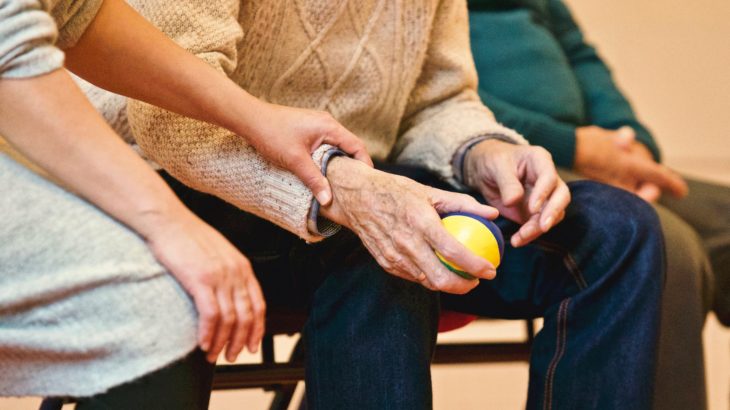Depade for Addiction Treatment
Depade is a brand name for naltrexone, a medication that can be used in conjunction with substance abuse treatments such as 12-step meetings, counseling, and social support to help you recover from drug and alcohol abuse.
Depade is a tablet that can be taken at home, or administered by a medical professional at a treatment center. It functions by decreasing alcohol cravings, and/or blocking the effects of opiate drugs.
Understanding Addiction Treatment with Depade
Depade (naltrexone) is a treatment for addiction to alcohol, and to opiate drugs such as hydrocodone, oxycodone, heroin, etc. It isn’t a cure for addiction, but it is a valuable tool that can be incorporated into your substance abuse recovery plan.
Depade’s blocking effect also works with alcohol, preventing the good feelings that you may associate with drinking. This reduces your desire to drink, and may help you stay sober.
When used in conjunction with other treatment modalities such as talk therapy and 12-step meetings, Depade can increase your chance of maintaining abstinence from drugs and alcohol for the long-term.
How to Take Depade
MedlinePlus from the U.S. National Library of Medicine explains that Depade comes in tablet form, to be taken by mouth once a day, once every other day, once every third day, or once every day except Sunday. Follow the directions on your prescription label carefully, and ask your doctor or pharmacist to explain any part of the instructions that you do not understand.
Depade should be taken exactly as directed. Do not take more or less of it, or take it more often than prescribed by your doctor. If you miss a dose, take it as soon as you remember. However, if it is almost time for your next dose, skip the missed dose and continue your regular dosing schedule. Do not take a double dose to make up for a missed one.
Although Depade can help you avoid substance abuse, it will not relieve the withdrawal symptoms that result from abstaining from your drug of choice. In fact, Depade will worsen, and even cause withdrawal symptoms, so you must not take it while you are still abusing drugs and alcohol. It is best to wait 7 to 10 days after quitting before you begin taking Depade.
Symptoms of Opiate Withdrawal
The U.S. National Library of Medicine lists the following symptoms of opiate withdrawal:
Early symptoms:
- agitation
- anxiety
- muscle aches
- increased tearing
- insomnia
- runny nose
- sweating
- yawning
Late symptoms:
- abdominal cramping
- diarrhea
- dilated pupils
- goose bumps
- nausea
- vomiting
Symptoms of Alcohol Withdrawal
The U.S. National Library of Medicine explains that “alcohol withdrawal symptoms usually occur within 8 hours after the last drink, but can occur days later. Symptoms usually peak by 24 to 72 hours, but may go on for weeks.”
Common symptoms include:
- anxiety or nervousness
- depression
- fatigue
- irritability
- jumpiness or shakiness
- mood swings
- nightmares
- not thinking clearly
Other symptoms may include:
- clammy skin
- enlarged (dilated) pupils
- headache
- insomnia
- loss of appetite
- nausea and vomiting
- pallor
- rapid heart rate
- sweating
- tremor of the hands or other body parts
A severe form of alcohol withdrawal called delirium tremens can cause:
- agitation
- fever
- seeing or feeling things that aren’t there (hallucinations)
- seizures
- severe confusion
Possible Side Effects of Depade
According to MedlinePlus, Depade may cause side effects. Tell your doctor if any of these symptoms are severe or do not go away:
- nausea
- vomiting
- stomach pain or cramping
- diarrhea
- constipation
- loss of appetite
- headache
- dizziness
- anxiety
- nervousness
- irritability
- tearfulness
- difficulty falling or staying asleep
- increased or decreased energy
- drowsiness
- muscle or joint pain
- rash
Some side effects can be serious. If you experience any of these symptoms, call your doctor immediately:
- confusion
- hallucinations
- blurred vision
- severe vomiting and/or diarrhea
Who Might Benefit from Depade Treatment?
The National Institute on Alcohol Abuse and Alcoholism explains that Alcohol Use Disorder (AUD) can be diagnosed when a patient answers “yes” to two or more of the following questions. If you replace drinking with using opiate drugs, these questions can equally apply to drug addiction.
In the past year, have you:
- Had times when you ended up drinking more, or longer than you intended?
- More than once wanted to cut down or stop drinking, or tried to, but couldn’t?
- Spent a lot of time drinking? Or being sick or getting over the aftereffects?
- Experienced craving — a strong need, or urge, to drink?
- Found that drinking — or being sick from drinking — often interfered with taking care of your home or family? Or caused job troubles? Or school problems?
- Continued to drink even though it was causing trouble with your family or friends?
- Given up or cut back on activities that were important or interesting to you, or gave you pleasure, in order to drink?
- More than once gotten into situations while or after drinking that increased your chances of getting hurt (such as driving, swimming, using machinery, walking in a dangerous area, or having unsafe sex)?
- Continued to drink even though it was making you feel depressed or anxious or adding to another health problem? Or after having had a memory blackout?
- Had to drink much more than you once did to get the effect you want? Or found that your usual number of drinks had much less effect than before?
- Found that when the effects of alcohol were wearing off, you had withdrawal symptoms, such as trouble sleeping, shakiness, irritability, anxiety, depression, restlessness, nausea, or sweating? Or sensed things that were not there?
If you have any of these symptoms, your drinking or drug use may already be a cause for concern.
Treatment with Depade
When taken under a doctor’s instructions as part of an addiction treatment program, Depade can help you abstain from alcohol and drugs while you work on underlying issues that may be contributing to your problem.
Although there are side effects, as long as you are being monitored by medical professionals while taking Depade, the medication’s benefits will usually outweigh the risks.
Drug and Alcohol Addiction Treatment
Individuals suffering from drug and alcohol abuse almost always require some form of professional help to break free from addiction. It can be intimidating to consider completely changing your life—but it can also be exciting.
Imagine waking up each day to a life that no longer revolves around drugs or drinking, but is instead dedicated to the people and pursuits you love. Imagine having the mental and physical energy to once more dream dreams and set goals. Imagine not just hoping for a better future, but knowing that every day you are working towards one.
Detoxification
Before you can start taking Depade, and before you can truly engage with addiction treatment, you need to rid your body and brain of drugs and alcohol. Taking Depade with addictive substances still in your system will result in unpleasant side effects and worsened withdrawal symptoms.
Once you are clean and sober, Depade can help you move forward with confidence, knowing that you have medical support for your recovery, in addition to the psychological and emotional support you’ll receive in treatment.
Recovery
Addiction treatment comes in many forms. You may choose to participate in an inpatient residential treatment program, or in an outpatient day or night program. No matter which you choose, you will work with your treatment providers to come up with a recovery plan designed to suit your personality and strengths and weaknesses.
Options likely to be part of your plan include:
- Support groups– 12 step meetings or other support groups are time-tested ways for addicts to work through problems and stay sober.
- Counseling– all patients need to talk through their issues with a therapist, both on an individual basis, and with family or other loved ones
- Treatment for co-occurring disorders– through counseling and other therapeutic interventions, you may be diagnosed with additional mental health disorders that will need to be treated as a part of your recovery
- Cognitive Behavioral Therapy– CBT treats addiction by giving you practical ways to change negative thought patterns and behaviors, replacing them with new, positive ways of coping with conflict, stress and cravings.

